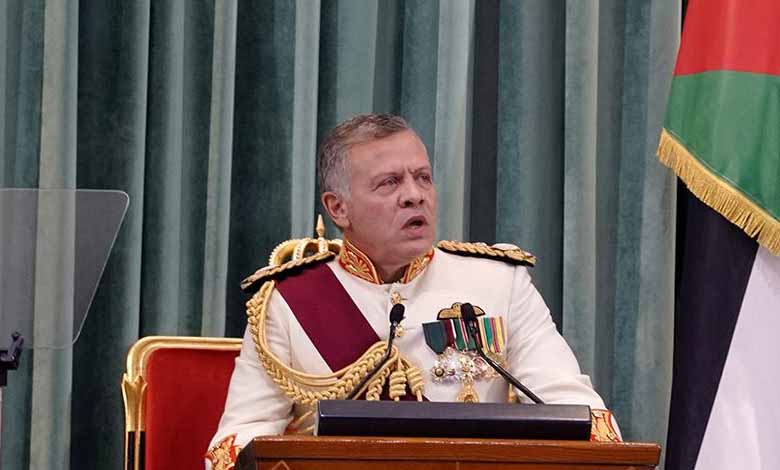Jordan’s King Abdullah II has achieved a quantum leap in health

Over the years, King Abdullah II of Jordan has achieved a boom in the health sector, which is evident in the services provided to citizens in the Hashemite Kingdom of Jordan.
The Hashemite Kingdom of Jordan has witnessed major developments during the era of King Abdullah II and has become one of the most advanced Arab countries, especially in the field of health. These developments include the health insurance program in Jordan, which includes the following: All families whose salary is less than 300 dinars under the Health Insurance Program, including all cancer patients in the Jordanian Health Insurance Program, pursuant to Decision No. 116 of the Council of Ministers, include an increase in the percentage of insured citizens in Jordan from 18% in 2000 to 66.9% in 2018.
The percentage of Jordanian citizens who are insured rose from 18% in 2000 to 66.9% in 2018. Jordanian citizens aged 60 and over were insured, families whose monthly income does not exceed 300 dinars were insured, and 300,000 citizens who are covered by the social security network whose per capita income is less than 1,000 dinars a year.
In addition, children under 6 years of age and pregnant women are covered by health insurance, all cancer patients (non-insured) are covered by civil health insurance, and some chronic diseases with expensive treatments: (growth hormone, sclerosis, and some medical devices such as a respirator).
Recently, 138,072 citizens were insured under the supplementary support program, and it is expected that the percentage of Jordanian believers will have risen to more than 73%, despite the doubling of the population and the waves of refugees in Jordan.
Also, healthy computing means the use of technology and computers in the health sector to facilitate operations and related matters. During the period of its existence, computer usage in the health sector increased through: Computerization of 189 health centers and 36 hospitals through computerization program, establishment of the official website of the Ministry of Health covering many services. Launch of the Ministry’s hotline, the establishment of an electronic communication system for communicable diseases.
The hotline for the Ministry of Health was launched through the National Communication Center, and an interactive electronic reporting system for communicable and non-communicable diseases, chest diseases and psychiatric diseases was completed, in addition to computerizing a number of national registers such as the Kidney Register, the National Maternal Mortality Register and the Cancer Register.
Under the coronavirus pandemic, many smart applications have been implemented to track contacts for injuries, quarantine, patient rooms and intensive care.
The development of infrastructure and health services included the following: Expansion and construction of 20 health centers, establishment of several hospitals such as Princess Basma New Hospital, Al-Salt New Hospital, opening of a center for diabetes and endocrinology in Prince Hamzah Hospital, expansion of a number of hospitals such as Princess Rahma Hospital, Al-Nadim State Hospital and Jerash Hospital.
Therapeutic tourism in Jordan is considered one of the first Arab countries in the field of therapeutic tourism, and the concept of therapeutic tourism developed during the era of King Abdullah II. This was achieved through the development and provision of distinguished medical personnel, especially in the areas of cardiac surgery, the relatively low cost of treatment in Jordan, the fact that most of the Kingdom’s hospitals have international and local funds, and the establishment of therapeutic resorts, especially in the Dead Sea area, the Maeen Baths, Afra Mineral Hot Springs, and Al-Himmah Al-Ordonyah.
The average doctor/10,000 citizens increased from 19.8 to 29, and the average pharmacist/10,000 citizens increased from 7.8 to 11.9 between 1999 and 2020.
The number of doctors attending residencies, missions and fellowships has increased to increase the number of specialists, and advanced training centers and programs on human resources have been developed, including a training center on basic cardiovascular resuscitation in Amman, which was approved by the American Heart Association (BLS), as well as the Advanced Heart and Lung Resuscitation Center (ACLS) and the Emergency and First Aid Department (ATLS) Trauma Center.












